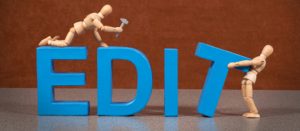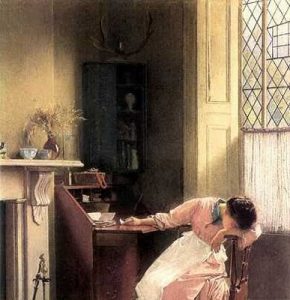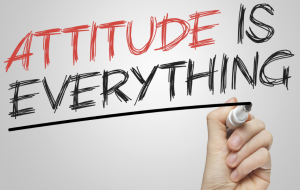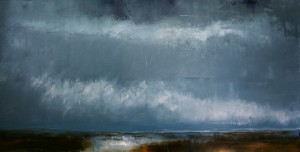Posts by Heather Webb
https://www.youtube.com/watch?v=mKYrAtIP-Ro
I’ve just blasted through the first act of my new work in progress. It was like falling in love again, my passion ablaze for this new subject and new characters. My fingers flew over the keys and the exhilaration of creating had me in its grip—until I got THERE. You know the “there” I’m talking about. That point when you realize you’ve laid all the groundwork you need, and it’s time to start making things happen. This is where the stakes must rise and the character really starts to unravel. It’s the place where I down-shift from fifth gear to first, and suddenly feel as if I’m wading through waist-deep mud.
At this stage, the “shiny new idea” has lost some of its luster. Those perfect and lofty concepts of story have suddenly morphed from glorious, inspired musings to basic building blocks: word count, paragraphs, dangling participles, bad grammar. GAH! Yeah, that’s all part of it, but the other big issue is the psychological mind f*ck that happens during the long, rambling second act. The characters seem to all sound the same, the plot feels flimsy and unbelievable, and the descriptions awkward. My confidence drains away and I start to feel like a total hack. I begin to question myself. Should I scrap these pathetic pages? Is this novel complete tripe? Does it even have a point? NO ONE WILL READ THIS CRAP.
I sink deeply into that mud. In a moment of desperation, I dial a writer friend! Invariably the conversation goes something like this:
Read MoreThe book market is shifting again as it has quite often in the last five years. Let’s face it. It’s desperately trying to keep up with our fast-paced world. How we discover books, how we purchase them, and how we read them have changed completely. All of that change is difficult for an industry that’s been around a couple hundred years, and it’s arguably even more difficult for those of us who create books in the first place. But the market is bound to evolve, especially in a digital, global world that must meet the needs of different kinds of readers. The market changes, sure, but is the craft of writing evolving too? I asked some established authors to see what they had to say. This is what I asked:
How has the craft of fiction changed in the last decade? Specifically, what have you noticed about books in terms of structure, characters, topics, trends, etc?
They said:
“I think in genre fiction, the readers are pushing for shorter chapters, quicker reads, and less depth. The publishers are following their lead. Literary fiction still allows the full beauty of the language to be explored, but genre authors have a unique challenge. Many of us try to inject a literary tone while still producing a page-turning quick read. That’s the sweet spot we are all shooting for, but with shorter attention spans, it is becoming a greater challenge.”—Julie Cantrell Perkins, NYT Bestselling author of The Feathered Bone
“I think the lines between genre and literary fiction are blurring. I think genre lit is becoming more character driven and nuanced. Literary fiction is becoming a little less self indulgent… stuff needs to actually happen in the book. In all cases I think the reader is beginning to expect more in terms of balance between engaging story and well-crafted prose.” —Aimie Runyan, author of The Daughters of France series
“Many published novels are shorter than earlier works, often less than 100,000 words and/or 300 pages and also much more first-person and multiple viewpoints rather than third-person following one pov.”—Sally Koslow, author of The Widow Waltz
“In women’s fiction, we’ve gone from which designer shoes to wear to much darker, beefier themes. I see this as women claiming literary equality: there’s no problem a male character can tackle in a novel that a female can’t–and the female may learn more from it.”—Kathryn Craft, author of The Far End of Happy
“I think there are expectations to crank out books faster and faster. Especially for romance and contemporary books (thrillers, woman’s fiction, mystery, etc).”—Amy E Reichert, author of Luck, Love, & Lemon Pie
Other changes authors have noticed include:
Read Morehttps://bit.ly/1BJnLiv
With so much happening in the news these days, I’ve been thinking a lot about truth. What is truth, exactly? Is it an objective fact that can be validated by concrete evidence, or is truth an abstract construct that gleans its meaning from the emotional experiences of an individual? Judges and cops will tell you, for every witness they question they hear a different version of the story. At what point do the fact-based truths and personal truths collide? More importantly, should we weave them into our fiction?
Absolutely.
For example, Josephine Bonaparte climbed in status from daughter of a meager sugar plantation owner to empress of France. Much of her climb involved hopping from man to man in search of stability, but she also had an eye for power. While promiscuity and “using” people isn’t something I necessarily condone, I still portrayed her as not only sympathetic, but likable. For one thing, it’s important to understand the context of the times. The French Revolution was a tumultuous and volatile time, so following the line of power not only meant her debts would be paid, but it meant she could avoid a date with Madame Guillotine. (She came within a hair’s width as it was.) The other issue was, her first husband financially abandoned her and their children, leaving her with no means to support herself. What choice did a woman of her social standing have?
Through my portrayal of this woman, my personal truth is clear: judgment should be rendered with care—or not rendered at all. In order to grasp why someone makes the choices they do, you have to understand the pressures they face, their traumas, and their belief systems. You have to, in a sense, become them. How would you feel in their shoes? Context always plays a part as well. Through the use of evidence-based facts as well as my personal truth, I have illustrated a vibrant picture of a fascinating woman. It may be weighted with feelings over facts, but it is a truth nonetheless.
Why is it important to take a stance in your fiction? To relate some sort of greater message through themes as well as your characters external and internal actions (and inaction)?
Because speaking your truth—taking a stance—is really the meat of your author voice. The banana in your banana split.
What the author has to say about certain aspects of life (philosophically and otherwise) bleeds into their narrative. You could also say the author’s backstory is funneled onto the page. Mix this philosophy and backstory with personal style and you have author voice. THIS is what readers connect to, either subconsciously or overtly.
Speaking your truth doesn’t mean every character sounds the same. A few notes on this:
Read Morehttps://bit.ly/2hVfq9S
While I write this post, I’m sitting in a café in Brooklyn, watching servers whip by carrying plates of breakfast food to eager customers. There are no piles of pancakes or greasy omelets and sausages, but rather breakfast salads with kale and seasoned sweet potatoes topped with grilled scallops, or biscuits dressed with chorizo and assorted greens. I smile as I glance down at my filleted avocado slathered with jalapeño crème fraiche, fluffy scrambled eggs with scallions, and a wedge of dragon fruit added for beauty—all range-free, fair-trade, and organic. (Let’s not forget guilt-free.)
“Ahh, Brooklyn,” I sigh with love.
I dig into my plate with glee, thinking back on the events of the previous day. Yesterday I wandered through an art gallery and sipped chocolate martinis with a dear friend, admired Christmas decorations that adorned the windows of Manhattan’s beautiful storefronts.
I relished the escape from my routine.
I’ve run away from home, you see. I’ve run away from my work-in-progress and my obligations. I’ve run away from social media (mostly), and the political black hole threatening to suck in all sentient beings around it. Instead, I’m enjoying myself (what a concept). I’m refilling my energy stores, and refilling my creative well.
I’m gathering my strength.
Read Moreht Buzzfeed
Raise your hand if you find yourself clicking all of those little videos on social media? Maybe you don’t even click them, but they start playing automatically and next thing you know, you’ve wasted five minutes on a baby smearing yogurt on their face, a goat “laughing,” or a SNL skit of the latest debate reenactment. I find myself increasingly drawn to these videos and I’m not sure why—I don’t even like TV much. In fact, I tend to get bored by it rather quickly. So what is going on here? Why am I—and most of us—drawn to these cutesy little gimmicks designed to grab our attention? What’s more, how can we apply that reasoning to our manuscripts? (Because, let’s face it, we need to draw our readers in just as easily, and delight them to keep their interest.) There’s something to learn from these videos…
Characters need rest (and so do readers): Your characters should be undergoing a series of tests constantly, but they do need a break from the shit-storm of tension and stakes, and the myriad of emotional horrors you’re throwing at them. These rest periods are true to life, for one, but the other reason is, your readers need a break as well. They need time to process what’s happening to the character, and time to watch the m.c. grapple internally with all that has happened to them.
For example, take the movie The Revenant with Leonardo DiCaprio. One horrific thing happens after another, so that by the time you hit the climax—or the supposed climax—you’re fairly inured to both the violence and the m.c.’s struggles. As the viewers, we haven’t had that real ‘coming down’ period to digest these traumas, or seen the protagonist digest them either. The events in that movie may have been true-to-life, but in fiction, we need transition scenes and rest periods to watch the character grow and deepen. Or, as I like to say, the m.c. needs “to catch a breath” and gather their strength for the next mishap headed their way.
Read Morewww.helpingwritersbecomeauthors.com
There are some who are lucky enough to write a novel and make it beautiful in two or three drafts. (Secretly, I loathe them. Why can’t I do that?!) Most of us, on the other hand, spend months and months, sometimes years, perfecting our works. By the time we’ve seen that story seven or eight or twenty times, not only are we too close to the story, but we may even hate it a little. How do we push through the weariness, bleariness, and general over-saturated brain fuzzies? Well, I like to:
Assign Parts, Read Aloud—Without doubt there is someone in your life who loves you (or at the very least is bribable), who will gladly practice reading troublesome scenes aloud with you. If that doesn’t work, read aloud and record your own voice. You’re bound to hear stilted, unnatural dialogue, pacing issues, and clunky phrasing.
Edit Chapters Out of Order—This is my favorite trick. Once I’ve swept through my story a hundred times, not only am I tired of it, but my eyes glaze over and I tend to anticipate the chain of events ahead rather than focusing on an aspect that needs fine-tuning. Reading chapters out of order prevents you from being swept away in the storyline. It gives you a new perspective—as if you’ve been dropped into the middle of the scene. To take this a step further, print out each chapter at a time. Reading type in ink really makes issues jump out from the page.
Read Other Books—When I’m frustrated and disgusted and fed up with my manuscript, the best cure is to read someone else’s beautifully crafted, or at least, highly entertaining novel. It takes me away, out of my head and into another realm. All of that research that says reading is directly correlated to writing skills is TRUE. You may find inspiration in someone else’s pages, or gain insight as to how to solve a craft issue. You may just be taking a much needed break. Don’t say you don’t have time. MAKE TIME. Reading fiction is the single most important way you can do to improve your craft.
Edit With Specifics in Mind—If you’re looking for one thing at a time, you’re more likely to narrow down an issue. Global edits are tough—it’s difficult to pinpoint smaller issues—and sets you up for failure. The character’s arc is weak? Buzz through the manuscript and highlight the exact moments the character changes. There should be a steady progression so that when the big finale comes in the end, there’s a WABAM climax moment of clarity/change in perspective/ shift in behavior. Perhaps the voice isn’t as strong as it can be. This is a perfect time to read your pages aloud. Hearing the characters thoughts and feelings fill a room can really help you get a grip on who that character is and what they should sound like.
Solicit a New, Strong Reader—Sometimes all you need is a fresh take from someone who knows nothing about the project. They may be able to point out exactly what’s missing or needs attention.
Let it Rest—This is by far the best idea and the advice you will hear most often. But it works. Distance makes […]
Read MoreIt’s the dog days of summer, and what a scorcher it has been. With my kids home from school, family vacations and activities have been underway. There’s lots of client work stacking up in my inbox, and other household responsibilities festering. I’m trying to take advantage of the weather and jam in as much exercise as possible, too. In other words, I don’t have a ton of writing time this season. When I manage to snatch some time for myself, I stare at the screen, distracted by all that sunshine and the aforementioned tasks. My energy feels like it’s being funneled into a hundred directions; my focus is disrupted. Then there’s the issue of waiting on feedback for a project I just wrapped, and beginning a new one. It’s got me in this weird between state.
I’m treading water.
This got me thinking about the reasons writers feel like they’re treading water, and how we wade through the murky waters of our challenging, creative pursuit. (Nevermind our wading through the shark-infested waters of our difficult and demanding industry.)
Read Morewaywardwriters.org
We’ve all been there, in that dark place where we procrastinate and downright abhor writing. We avoid the imperfect sentences, the sagging storyline in need of an overhaul, or perhaps we avoid the new project. We think about that twisting road to completion and it overwhelms us to the point of shutdown. There are loads of other reasons we don’t want to write, of course. Maybe it’s because:
Tower Bridge taken by Heather Webb
I’ve just returned from Europe and as usual, enjoyed my time immensely. Each day, I relished mapping out my plan for the day and traveling around the city unencumbered. There’s something energizing about that kind of freedom—choosing where you’d like to go without a computer or responsibilities, the thrill of adventure zipping through your limbs. I noticed the little things: the kooky signage, the way the light hits the landscape at different times of day, the row after row of buildings from another era. I took in the patterns of people to and fro on the trains, popular dishes and beverages, the scent of cool damp and fried fish, the way people behaved in public. “Civilized” came to mind often. I even reveled in the political conversations I had with Europeans who knew more about American politics than most people I know, including those who are well-educated. Many good times.
Amsterdam Canals taken by Heather Webb
My traveling companions weren’t writers. In fact, they’d never met one before. I’m an extrovert so though I absorb silently, the most peculiar and interesting pieces I tend to process out loud with those around me. For fun, for engagement, for their thoughts on the matter. My companions seemed amazed by all I noticed, picked apart, and analyzed. And perhaps a little daunted at the number of books I purchased and pictures I snapped for research. “Wow, I’ve never thought of that,” and “I would have never noticed that,” became common words on their lips. I’d forgotten what it’s like to spend long periods of time with people who either don’t write, or know nothing of writerly habits. Those closest to me have grown used to my musings and dissections, and the constant puzzling. They watch me meticulously pore over one scene, one line. They see the way I delight in, and dig deep, into world-building.
Somehow, amid the demands of family and life, and those that come with working through intensive revisions, I had forgotten just how special it is to be an author.
But my new friends, oddly, renewed my appreciation for the amazing things writers do on a daily basis. The gathering, synthesizing, and problem-solving. Our sensitivity, our passion. The way we become alive with inspiration when the muse sprinkles fairy dust over us. How we celebrate, when things click into place and it all feels like magic.
It’s good to see ourselves through others’ eyes sometimes. It offers much needed perspective, but it can also be a wonderful boost of self-confidence. In such a difficult industry where we must audition over and over again and wait to be accepted and heralded, or rejected and ridiculed, it’s important to recognize how noble our pursuit is, how it sets us apart from others. It’s important to remember the value we bring to the writing world—and others—and the value writing brings us.
Today I am grateful, and will never forget the rewards of being a part of the community of writers who share in my passion. I hope you take a moment to do the same.
Can you think of a moment that reminded you to “stop and smell the roses”, […]
Read Morehttps://www.engadget.com/
It’s like something out of a science fiction novel—literally. A computer science professor and his team co-created novels with an Artificial Intelligence system. Eleven of these novels were submitted to a Japanese literary contest called the Hoshi Shinichi Literary Award. ONE NOVEL PASSED ON TO THE SEMI-FINALS! Here’s the kicker. The judges, while they know there are some AI-written stories among the submissions (they’ve allowed stories from machines in the past), they have no idea which entries are written by human beings and which are those of the AI systems.
Perhaps this article is a bit of a stunt to solicit grant money and publicity, and the machines aren’t as far along as they’d like us to believe. I’m not sure that’s the point. The point is that we’re striving to recreate the human brain, and have been for some time. We’re at the stage where these advances not only affect our lives in terms of conveniences, but they may also affect the way we create—the way we look at art. The way writers are valued. With lack of value comes a degradation of the entire industry.
There are two schools of thought in this scenario of machine-over-man. 1.) Of course AI will evolve to this point. If man can dream it up, he can develop it into a reality, OR 2.) The human mind is too intricate and can never be replicated.
But just look how far technology has already come.
Read MoreToday I’d like to talk about the part of writing that doesn’t get stressed very often—the days we haven’t finished anything, we haven’t hit any goals, we haven’t achieved a single damn thing, save sitting at the keyboard. In those days of limbo, we loll about in our sweatpants and coffee-stained shirts, eyes red-rimmed after too many hours being a slave to our characters’ worlds. We slog, we toil, we siphon off bits of our psyche and our souls.
In these days we are silent, yet all roars within us.
Something emerges in that silence. Surges of doubt, certainly, but also a big something that we, as humans, have trouble harnessing—a deep restlessness. A constant, uncomfortable low-grade anxiety swirls in our bellies. It sends us to the kitchen more often than it should, or to gnaw on our nails, or to compulsively check social media. It makes us insomniacs. It gives us mid-life crises. It shows us we are dissatisfied. We ask ourselves questions like: Am I depressed? Am I unhappy with my life? What am I missing? How do I satiate this weirdness eroding my sense of contentment?
Among writers and other artists, it’s an impetus that gives rise to creative impulses. It’s a craving, a yearning, a NEED to create something unique, to add to the fabric of human experience. It’s a sensation we can’t ignore. Do you know what I’m talking about? Do you feel it?
There are ways we can channel this deep, restless yearning to keep from drowning.
DIRECT YOUR FOCUS ELSEWHERE and I don’t mean on another novel or short story, but some other creative, satisfying pursuit. Perhaps you play an instrument or work with wood or enjoy scrapbooking. Maybe you’re a gardener with a wicked green thumb and an eye for lovely arrangements. I’m a bit of an amateur foodie so I dig challenging recipes with interesting ingredients. Whatever it is, this outlet should have some sort of concrete, tangible result, some finite product that offers fairly immediate satisfaction.
These short-term projects not only help you refill the creative well and afford a much needed reprieve, but they often meet the need for completion that we crave. Writing a novel is epic. It takes time and energy and sweat and that soul-siphoning I mentioned above. Often, we find ourselves frustrated at how lengthy the process may be. Outside of writing, find something that affords immediate gratification to take the edge off, and to assuage the much-needed feel of accomplishment.
MOVE IT OR LOSE IT Engage in some sort of physical activity, whatever that may mean for you. Exercise gets the blood flowing to your brain, acts as a great release for stress, and can also serve as moving meditation. In those moments of physical release and quiet contemplation, ideas are often sparked and puzzles are solved. Beyond that, exercise helps keep your energy up and pumps your bloodstream full of much-needed endorphins. In other words, it gives you shots of happiness to balance the blahs, the melancholy, the feelings of inadequacy. It reminds you that you’re ALIVE.
PROCURE RELATIONSHIPS with other writers so you feel less alone. In particular, befriend those who are at the same stage […]
Read Morewww.papercitymag.com
Being in a creative field has never been an easy pursuit. Low wages, the subjective nature of the arts, and the struggle to be seen pretty much ensures we’re all a little bit nuts for doing it. As if all those factors aren’t bad enough, non-writers often belittle the incredible time, effort, and care that goes into a well-crafted book without realizing it by saying things like, “I’ve started a journal on my dog’s habits and I have another really great idea. I’m sure it would be a bestseller.” In addition to these lovely aspects, we suffer from ubiquitous social media and all that comes with it—the humble brag, vague-booking, and flat out self-indulgence. (We won’t address some of the other hideous things like trolls and bullying.) We get to see, day in and day out, what EVERYONE ELSE has. How everyone else is better off than we are. How pathetic we are in our attempts to be respected and celebrated authors.
It’s tough watching others succeed when we aren’t where we’d like to be. We begin to compare ourselves to that person whose Good News with a capital “g” keeps popping up in our newsfeed. We want that A-level agent, that big publisher, too! We ask ourselves things like: Isn’t my writing stronger, my premise more interesting than hers? Why the hell is this author a bestseller with her lackluster skills? Why did she get all the marketing power when it’s not even a good book?
Read MoreIt’s been a mild and lovely fall this year, but the publishing industry is red hot, keeping us on our toes as usual, and our thirst to become stronger writers is strong as ever. We ran an experiment here at Writer Unboxed where we brought publishing news to you on the website. After some data analysis and discussion, we’ve decided to keep doing the things we do best on the website–impart wisdom, inspire, and spark thought-provoking discussions. So we’re retiring our Hot Tweetable posts here, but we hope you will continue to follow our hashtags on Twitter where our team will be tweeting the best writerly and industry links on a daily basis. For a final hurrah, we give you some of the choice stories of the autumn.
#WUPRINT
"Book trade braced for Spending Review cuts" says @thebookseller https://t.co/uMe3dtLeNv #WUPrint
— Writer Unboxed (@WriterUnboxed) November 24, 2015
The problem of publishing & deep discounting https://t.co/rKyhf5DX48 #WUprint #WUdigital
— Writer Unboxed (@WriterUnboxed) November 19, 2015
"American Writers Museum to Open in 2017" @galleycat https://t.co/43FVQO7Qu3 #WUPrint
— Writer Unboxed (@WriterUnboxed) November 11, 2015
"Publisher Murdered, Others Attacked, in Bangladesh" @pubperspectives https://t.co/hztIoadPFp #WUPrint
— Writer Unboxed (@WriterUnboxed) November 3, 2015
"Gender Bias: Are You Aware Of Yours?" via @Porter_Anderson https://t.co/2JF7I9w5kq #WUPrint
— Writer Unboxed (@WriterUnboxed) November 10, 2015
"I thought the Amazon store was a terrible idea. Then I actually went there" @voxdotcom https://t.co/Wjb0UKHvKI #WUPrint
— Writer Unboxed (@WriterUnboxed) November 9, 2015
#WUDIGITAL
"Innovation is the Only Way to Increase Ebook Sales" @pubperspectives https://t.co/GCJH7Bs4Tf #WUPrint #WUDigital
— Writer Unboxed (@WriterUnboxed) November 18, 2015
New Harper Collins imprint wooing indies. https://t.co/ZNKX4jcO82 #WUprint #WUdigital
— Writer Unboxed (@WriterUnboxed) November 20, 2015
"How Publishers Are Using Smart Automation to Drive Sales" @digibookworld https://t.co/5E7PeWdiFY #WUDigital
— Writer Unboxed (@WriterUnboxed) November 4, 2015
#WUAGENT
AGENT ALERT: Kara Leigh Miller of Corvisiero seeks romance, inspie, thrillers, mystery, horror https://t.co/H2zeFeFjmv #WUAgent
— Writer Unboxed (@WriterUnboxed) November 19, 2015
How to hook an agent/reader on page one: 6 tips, via @carlywatters https://t.co/g8AiEVW0TQ #WUAgent
— Writer Unboxed (@WriterUnboxed) November 6, 2015
"When the Publishing Business Just Isn't Into You" https://t.co/imP5JNzAGK #WUAgent
— Writer Unboxed […]
Read More





















